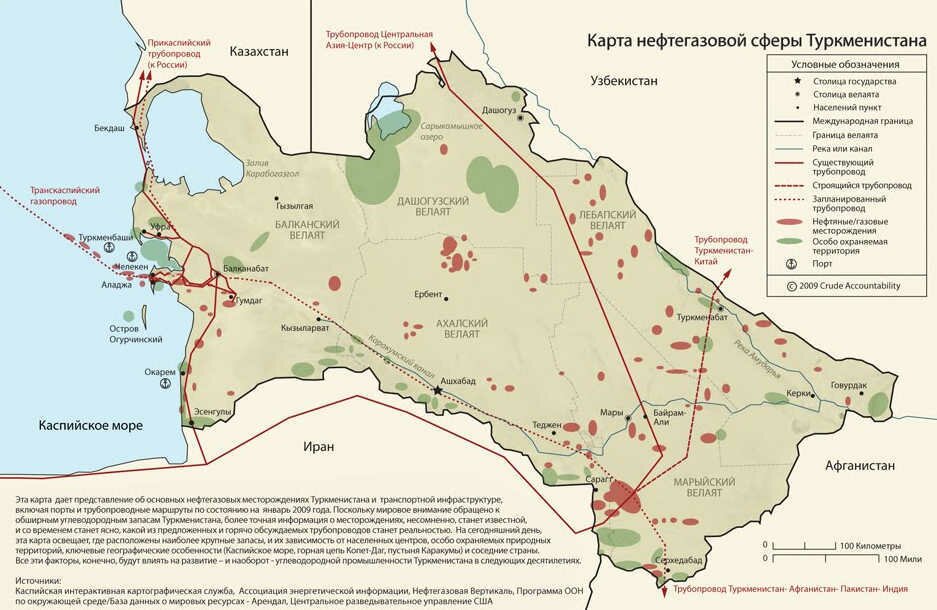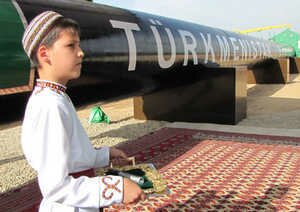
July 8 this year the governmental portal of the oil and gas industry of Turkmenistan Oilgas.gov.tm said that due to the world economic crisis and the Western countries' economic sanctions against Russia, “Gazprom” has turned out insolvent on its contracts for purchase and sale of natural gas.
Thus, according to this statement, “... since the beginning of 2015 the Russian company “Gazprom” has stopped payments to the State Concern “Turkmengaz” for the supplied volumes of Turkmen natural gas, due to which fact, Turkmenistan declared “Gazprom” an insolvent partner”.
So, today “Gazprom”'s relations with Turkmenistan once again are experiencing an acute crisis within the framework of a permanent dispute over the cost of Turkmen gas, which actually began in the early 2000s. At this, the volumes of purchases of Russian gas kept shrinking, while the price of gas was decreasing. By the end of the 2000s the problem was critical, because then “Gazprom” started its own considerable production in Yamal, and the demand for Russian gas in Europe fell sharply.
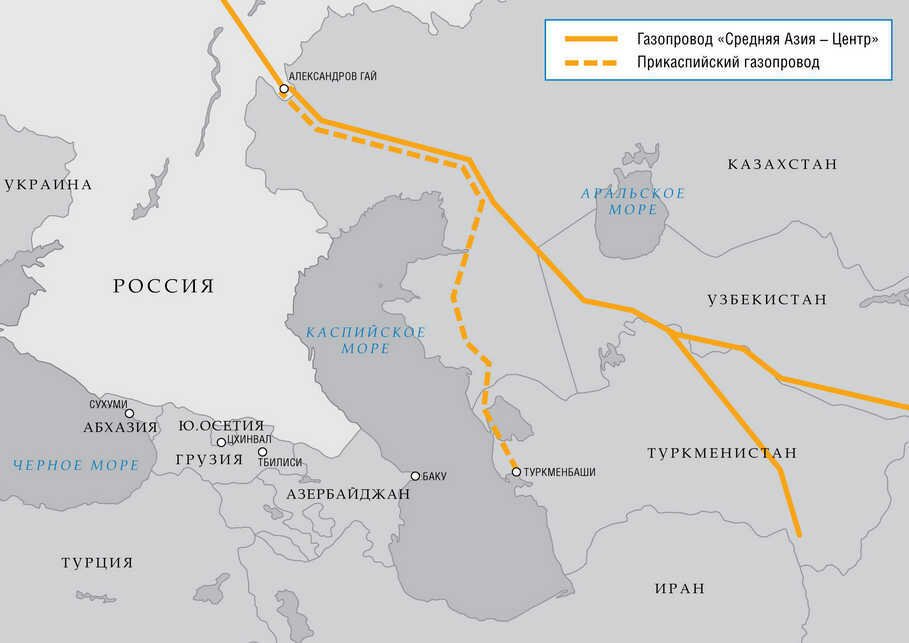 In fact, Russia is no longer in need of Turkmen gas, but it could not let the gas pipeline “Central Asia-Center”, located on its territory, supply the Turkmen gas, first of all to Ukraine, and then directly to Europe. I remember almost all the presidents of Ukraine agreed with the Turkmen side on direct supplies of Turkmen natural gas to Ukraine, but the question of such bilateral agreements had little or no development. Russia simply blocked possible natural gas supplies from Turkmenistan to Ukraine, and further on by its gas transmission system — to Europe.
In fact, Russia is no longer in need of Turkmen gas, but it could not let the gas pipeline “Central Asia-Center”, located on its territory, supply the Turkmen gas, first of all to Ukraine, and then directly to Europe. I remember almost all the presidents of Ukraine agreed with the Turkmen side on direct supplies of Turkmen natural gas to Ukraine, but the question of such bilateral agreements had little or no development. Russia simply blocked possible natural gas supplies from Turkmenistan to Ukraine, and further on by its gas transmission system — to Europe.
In its turn, “Gazprom” first unilaterally reduced purchases of gas in Turkmenistan, and then, in April 2009, there was an accident on the gas pipeline “Central Asia-Center” (directly through the fault of the Russian side, which deliberately did not take the stated in the contract volumes of Turkmen gas) and the deliveries of Turkmen gas to Russia stopped completely.
They resumed only in January 2010, after Turkmenistan had agreed to reduce the price (for the umpteenth time!) for gas to 240 US dollars for 1 thousand cubic meter, and the volume of deliveries — to 10 billion cubic meters per year. Under such conditions Turkmen gas had been delivered to Russia for the past almost five years. But in late 2014, “Gazprom” insisted on buying only 4 billion cubic meters of gas from Turkmenistan. And again it began blackmailing the Turkmen side on the reduction of the purchase price (according to expert circles — about 180 US dollars per 1 thousand cubic meters).
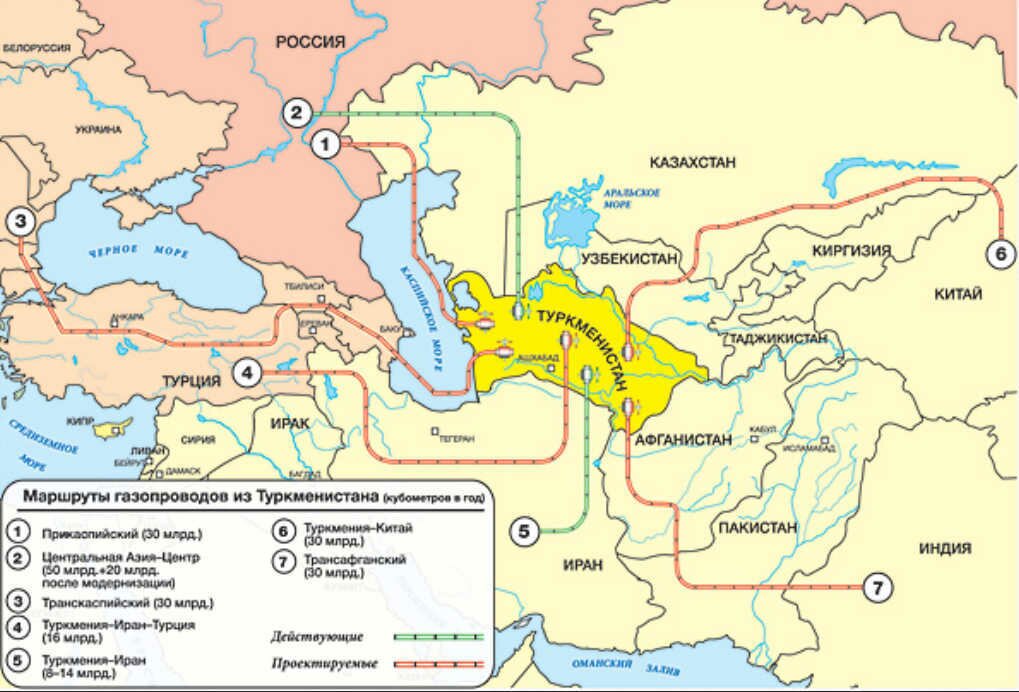 All the recent negotiations on the reduction in the price of Turkmen gas have proved fruitless. Since the beginning of 2015, “Gazprom” unilaterally has actually been paying for gas as much as it sees fit. In fact, “Gazprom” has been using against Turkmenistan the strategy which “Gazprom” considers inadmissible when Ukraine tries to resort to it. As a consequence, Turkmenistan, which this year alone has lost about 400 million US dollars, accused the Russian “Gazprom” of failing to pay, and the latter began to threaten the Turkmen side with the court.
All the recent negotiations on the reduction in the price of Turkmen gas have proved fruitless. Since the beginning of 2015, “Gazprom” unilaterally has actually been paying for gas as much as it sees fit. In fact, “Gazprom” has been using against Turkmenistan the strategy which “Gazprom” considers inadmissible when Ukraine tries to resort to it. As a consequence, Turkmenistan, which this year alone has lost about 400 million US dollars, accused the Russian “Gazprom” of failing to pay, and the latter began to threaten the Turkmen side with the court.
But such a step could significantly weaken “Gazprom”'s positions in Europe, which for many years has been assured by the company of warranty and inviolability of the gas contracts. If “Gazprom” does dare to bring this dispute with Turkmenistan for consideration into the European arbitration, it will set a precedent for the first time in the history of Russian-Turkmen gas relations. According to “Borysfen Intel”'s experts, such a situation would have quite negative consequences, first of all for “Gazprom” itself. Before that, it consistently defended in disputes with European clients its positions of a gas seller.
Now we see that Russia insists on the importance of long-term contracts pegged to oil in the western sector, which seem to provide stability and reliability of gas supplies, while in the south-eastern direction it unilaterally reduces the cost of gas and the volume of its purchases. These are Russian gas double standards! Besides, the victory in the arbitration will be for “Gazprom” worse than losing, because this decision as precedent, will immediately be used by Europe against the very same “Gazprom”.
At this, we should remember that April 22, 2015, the European Union Antitrust Regulator officially accused the Russian “Gazprom” of the abuse of competition in eight Eastern European countries (Estonia, Latvia, Lithuania, Poland, the Czech Republic, Slovakia, Hungary and Bulgaria), as well as of the EU anti-monopoly legislation. “Gazprom” does not agree to such a decision, considering it to be groundless. Despite this, until the end of July, “Gazprom” has to provide the European Commission with the official response to the accusations.
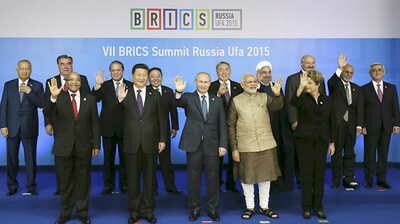 A number of leading Western experts believe, not without reason, that this Russian-Turkmen gas conflict today can play a cruel joke with the Russian side – to significantly spoil “Gazprom”'s image in the eyes of Asian partners, gathered in Ufa for the SCO and BRICS summits (July 8-10, 2015). The Turkmen side has well enough chosen the time to make its declaration of “Gazprom”'s insolvency and the unreliability, as in these summits the leadership of China takes part and energy issues are being discussed. By the way, a future supply route for natural gas from Russia to China, on which “Gazprom” is negotiating, is a direct competitor of Turkmen gas. Here, as they say, no comment.
A number of leading Western experts believe, not without reason, that this Russian-Turkmen gas conflict today can play a cruel joke with the Russian side – to significantly spoil “Gazprom”'s image in the eyes of Asian partners, gathered in Ufa for the SCO and BRICS summits (July 8-10, 2015). The Turkmen side has well enough chosen the time to make its declaration of “Gazprom”'s insolvency and the unreliability, as in these summits the leadership of China takes part and energy issues are being discussed. By the way, a future supply route for natural gas from Russia to China, on which “Gazprom” is negotiating, is a direct competitor of Turkmen gas. Here, as they say, no comment.
At the same time, Russia is not interested in Turkmenistan's drifting towards China, the EU or Iran, that is why it declares readiness to discuss promising new projects of interest to official Ashgabat. Namely — the investments for the development of new deposits of energy resources and deep processing of hydrocarbons. At the same time, the Russian government's sources, and leading industry experts call this set of questions too complicated and expensive, and therefore its solution will needed contacts at the highest level — at the level of presidents.
According to the latest information, the Turkmen President Gurbanguly Berdymukhamedov's visits to the Russian Federation or the Russian President Vladimir Putin's visits to Turkmenistan have been scheduled for this year.
It is hard to tell how the Russian-Turkmen gas conflict will end. But the fact that it does not add weight and credibility to the image of Russia (“Gazprom”, Putin personally) – that is for sure. It will be interesting to see, in particular, China's reaction and behavior, as well as those of the EU.
Besides, the Russian-Turkmen conflict situation in a certain way is interesting to Ukraine, which can and should use it in negotiations with “Gazprom” on the price for Russian gas, and to consider the possibility of resuming (together with the European Union) of gas talks with the Turkmen side.


